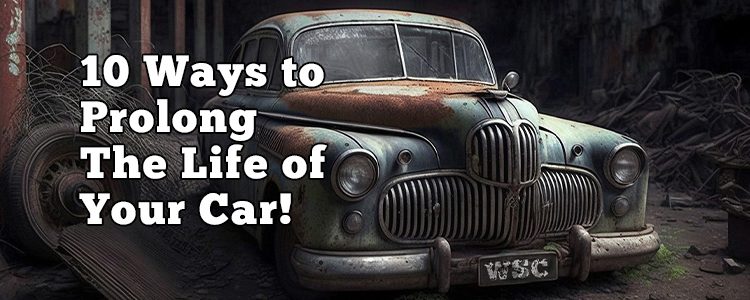
10 Ways To Prolong The Life Of Your Car
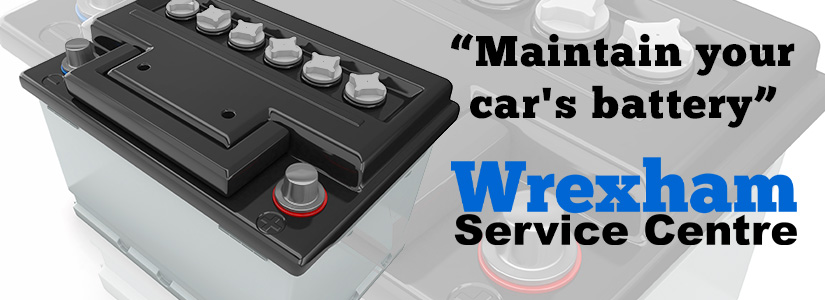
The battery in your vehicle will deteriorate and run out of power if you don’t use it for a while.
If your vehicle is kept in a garage for an extended period, think about using a trickle charger to keep the battery charged or a battery conditioner if it seems to hold a charge less than usual.
Jump-starting a car after your battery dies increases wear on the battery and increases the risk of harming the engine management system and other important electronics.
Without a trickle charger, you should try to drive your car at least once a week, preferably more frequently during the winter.
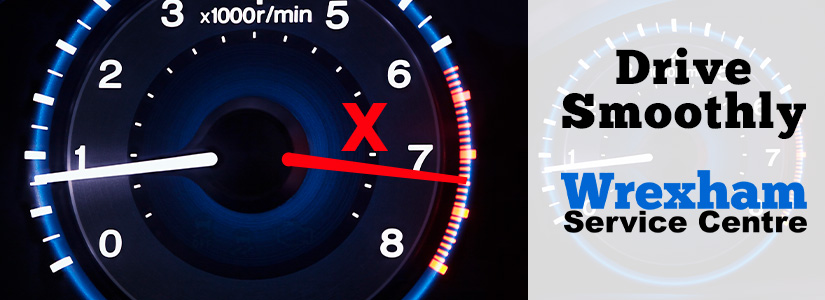
You should always strive to drive with “mechanical sympathy.” It entails operating your car’s controls while being aware of how they operate.
By doing this, component wear will be decreased, and fuel efficiency will increase. In addition, simple techniques like smoothly managing the pedals, steering wheel, and gearbox are essential to lessen the need for abrupt braking.
Further advice on improving your driving style to maximise your vehicle’s fuel efficiency may be found in the RAC guide on conserving fuel.
“Your fuel and repair costs will likely increase the more aggressively you press the pedals. Yet, smooth driving is better for the environment and your car. You can save fuel costs by controlling your acceleration and deceleration while driving and planning ahead.”
Yet, suppose you never rev your engine all the way up. In that case, carbon deposits can accumulate and clog the intake manifold, valves, and other components, limiting performance and perhaps resulting in a misfire.
Therefore, your engine should reach the redline at least once every few hundred miles, but only when the oil is heated and the road is quiet.
Moreover, diesel particle filters (DPFs), which are intended to capture dangerous exhaust pollutants, may become clogged in diesel vehicles.
Once a month, a lengthy motorway journey will assist in clearing deposits.
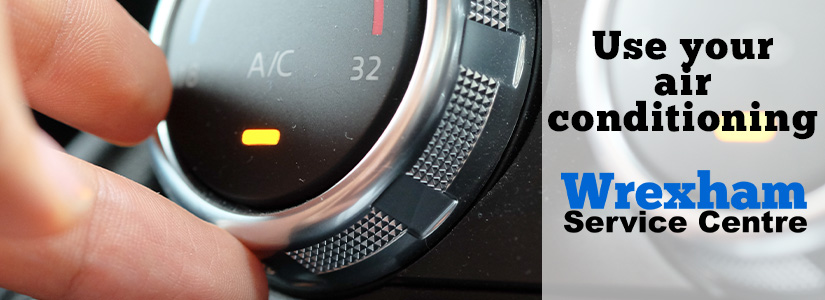
The saying “use it or lose it” could describe air conditioning. Over time, air conditioning systems inherently leak refrigerant gas, especially if not utilised frequently.
The cost of air conditioning re-gassing, typically around £50 and available at Wrexham Service Centre, may outweigh any fuel savings from leaving your air conditioner off.
And yes, this also entails occasionally allowing the chilly air from your vents in the winter.
If you believe you require a re-gas, please get in touch with Wrexham Service Centre on 01978 265 660.
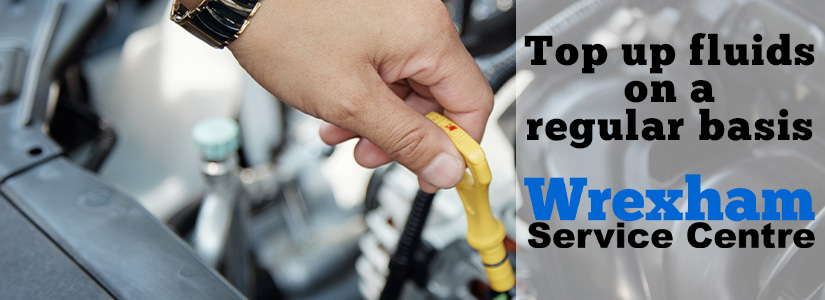
Your car depends on its fluids; therefore, running low on them could have disastrous results.
Once every two weeks, remove the dipstick from the engine and check the oil by opening the bonnet when the car is on level ground. Then, after wiping it down with a rag, dip it.
If your car has a petrol engine, the oil level as it comes back out should be between the minimum and maximum indicators and light yellowy-brown. Replace any oil that is dark or soiled. Dark-coloured oil isn’t a problem with a diesel car because soot collects in diesel engine oil as part of the normal combustion process.
The coolant reservoir, which you should top up with a mixture of 50% distilled water and 50% antifreeze, and the windscreen washer bottle are other areas to inspect every two weeks. For the latter, we advise using screenwash that you may purchase.
Do not be tempted to use a washing-up liquid as it contains salt and other ingredients that will harm the paintwork, so resist the urge to use it.
“You’d be astonished at how many vehicles have dangerously low oil levels. So, I always check the coolant and oil levels. We frequently find that the coolant is dangerously low, and the oil is near the bottom of the dipstick. Either scenario could severely damage the engine. Therefore, it’s simple for the driver to keep an eye on these and develop the practice of checking them every two weeks.”

Your car needs routine maintenance to remain in good shape and last longer.
Service intervals are determined by the length of time or the number of miles driven, such as every year or 10,000 mile. See the manual to find out when your vehicle needs a service and what needs to be done. Also, many modern vehicles have dashboard warning lights that flash when maintenance is required. In general, you should plan to spend money on “small” services once per year and “major” services every two to three years.
Changing the oil and oil filter and other essential fluid replacements is considered a minor service. The replacement of the air filter, spark plugs, and cambelt may also be included in a major service, depending on the vehicle and mileage. Even a minor service involves a wide range of activities. Still, they all should include inspections for fluid and oil leaks, tyre pressure and condition, excessive exhaust emissions, brake wear, and the proper working of the steering, gearbox, clutch, suspension, lights, wipers, and horn. If your car needs a service, contact us on .
“While it may seem simple, keeping up with your car’s maintenance is the finest thing you can do to extend its useful life and ensure its dependability. You can avoid an unpleasant breakdown and save money on repairs by investing in an annual service.”
If your car is in need of a service, please get in touch with Wrexham Service Centre on 01978 265 660.
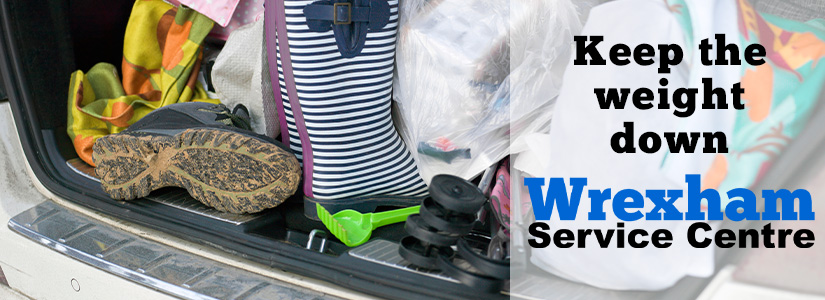
Car manufacturers continuously seek methods to lighten their vehicles’ load to improve miles per gallon and meet emission standards. So, it makes a lot of sense for you to minimise the weight your car carries wherever possible.
Carrying extra weight is a proven way to reduce your car’s fuel economy. But unfortunately, your suspension, brakes, and tyres will all endure more damage as a result.
A practical fix is to take out any extra items from the vehicle. Start by checking the door pockets and glove box, then scan the seats for stray toys or drink containers. Then, go through the boot and remove anything unnecessary. In an emergency, just keep the necessary tools, like the jack, locking wheel nut key and towing ring. Also, it’s a good idea to maintain a breakdown kit inside if you have the misfortune of breaking down.
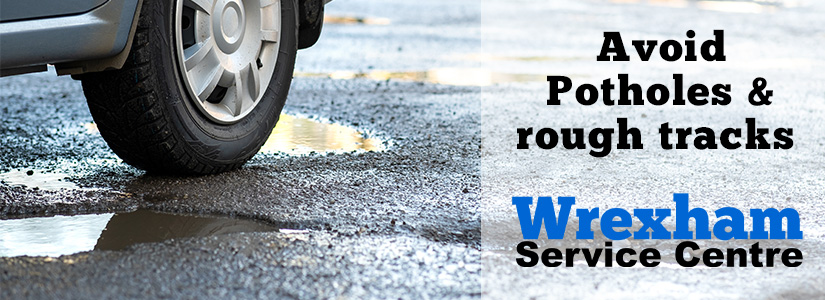
Your suspension, tyres, and exhaust are all severely damaged by potholes. Sidewall bulges and tread separation can occur due to the rough edges on poorly maintained roads. In some circumstances, they can also deflate tyres. In addition, driving through crater-like holes can cause the suspension to become out of alignment and shocks to sustain damage. Bigger holes may potentially damage catalytic converters, resulting in holes and a loss of power.
To prevent wear and tear, it is preferable to travel on roads with smoother surfaces wherever possible and avoid any potholes you see safely and carefully.
Visit the RAC website to find out how to report a pothole and claim for damage.
If you think your car has sustained any damage through hitting a pothole , please get in touch with Wrexham Service Centre on 01978 265 660. One of our technicians will carry out a free check.
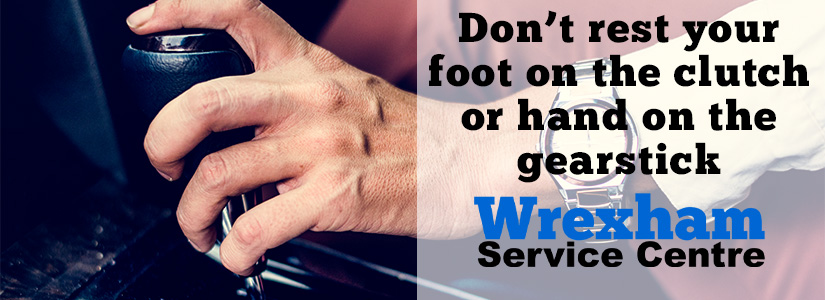
Some motorists tend to operate the vehicle with the clutch pedal slightly depressed by resting their foot on it. As a result, excessive friction is created when the clutch release bearing is pushed into contact with the clutch cover. As a result, the clutch may prematurely wear out over time.
Similarly, it can be tempting to rest your hand on your gearstick when shifting gears, but doing so puts stress on the selector fork and other internal components. Again, the increased friction hastens the gearbox’s deterioration.
Try to develop the habit of placing your left foot somewhere else in the footwell and shifting your hand back to the steering wheel.
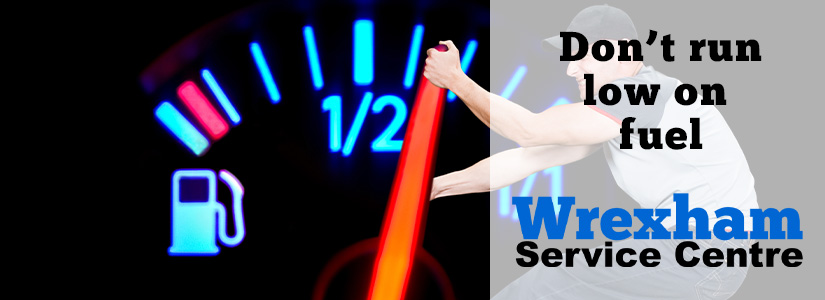
When you run out of petrol, your fuel pump will try to start your vehicle by drawing on the dirt and sediment in the bottom of the fuel tank. Unwanted materials have the potential to block fuel and prevent your vehicle from starting by clogging the system and eventually eroding your pump and filters.
Diesel car owners should take extra care to avoid running out of fuel since the powerful injectors in their engines pull a lot of air into the system, which might prevent the engine from starting.
Keeping fuel levels up can help you avoid more costly future repairs.
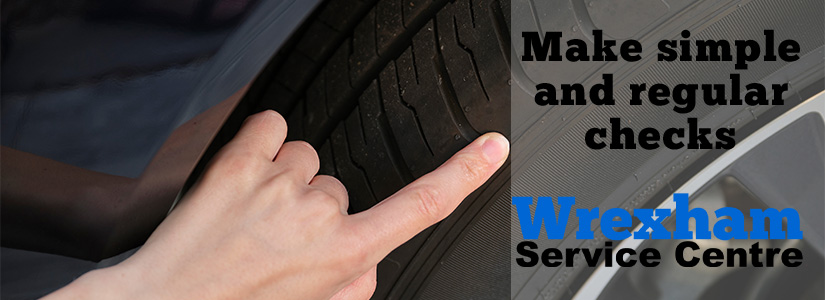
Routine inspections are one of the simplest and most efficient ways to extend the life of your car. A checklist of necessary DIY checks will help you spot issues before they balloon into more expensive repair costs. It may even enable you to avoid difficulties altogether. We advise doing it as frequently as you can, possibly every two to three weeks:
- fuel
- oil
- brakes
- electrics
- rubber (tyres and wiper blades)
- coolant
- screen wash
- engine air filter
- spark plug (petrol engines only)
- air conditioning
- interiors
- exteriors
If your MOT is due or you want to book your vehicle for a full car service, you can book online or speak with one of our staff today.
